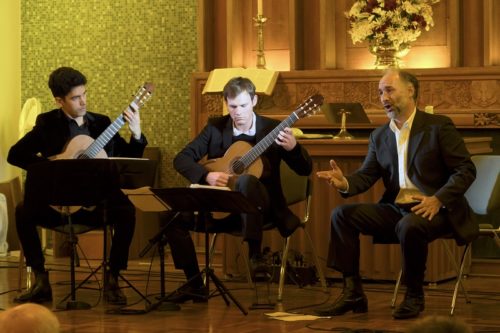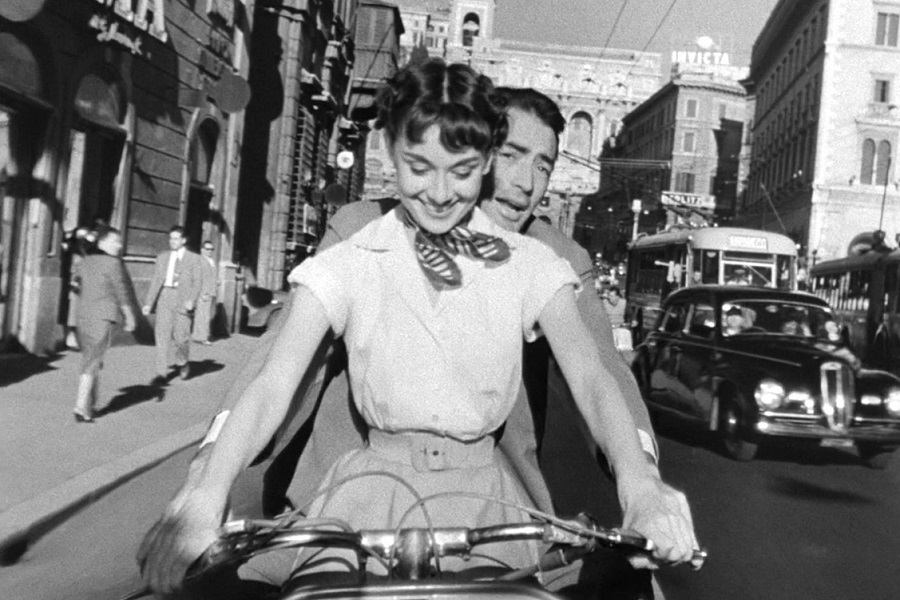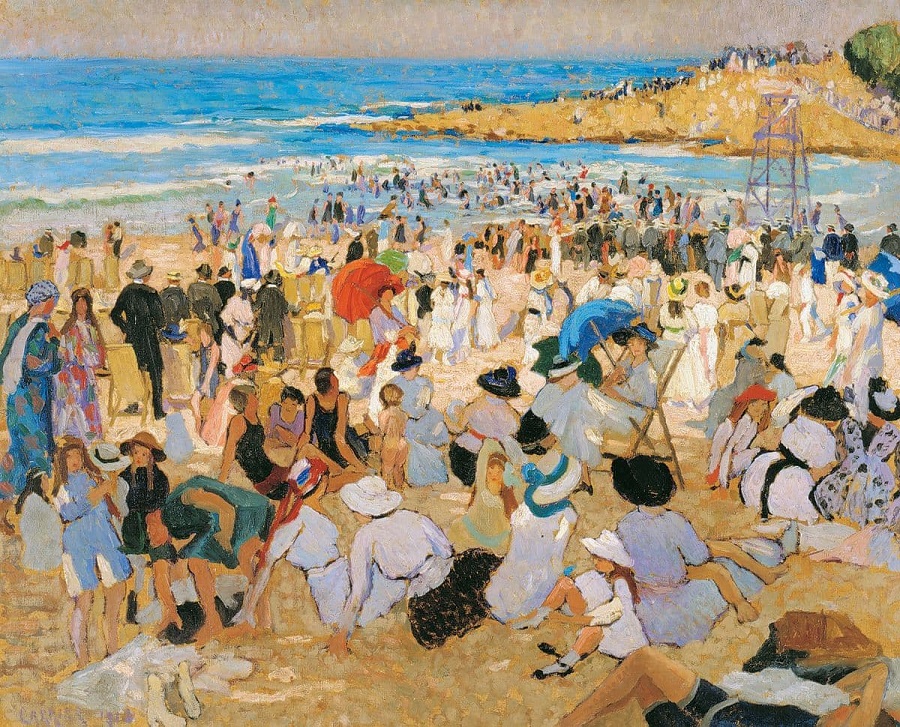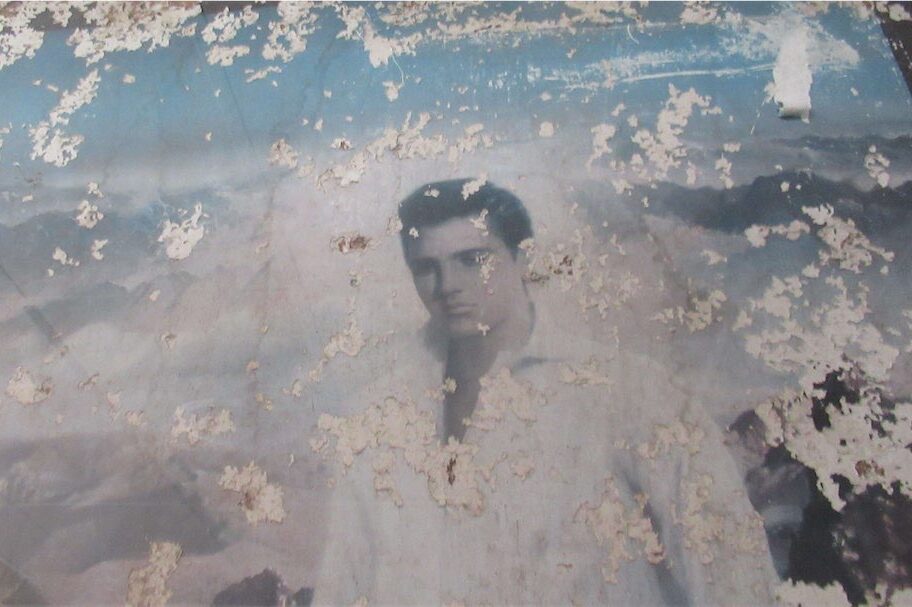
Music / “L’Heure exquise” (The exquisite hour), the José Carbó Trio, Wesley Uniting Church, September 22. Reviewed by HELEN MUSA.
ART Song Canberra’s “Season of Song” took a rare turn over the weekend with the appearance of the José Carbó Trio, in which the vocalist was joined on the platform not by a pianist by two refined classical guitarists.
Operatic baritone Carbó, whose fan base was evident from the large turnout, told “CityNews” he had, in a vision following Canberra’s 2015 Voices in the Forest concert, seen himself joining guitarists Andrew Blanch and Ariel Nurhadi, both star graduates of the ANU School of Music. And from that the trio was born.
They have been working hard over the past four years translating instrumental music to guitar and the end results are a form of perfection.
“We truly are a trio, not just a singer with accompaniment,” Carbó said as he explained why he sat on a chair to perform, putting himself on the same level as the guitarist, and using a microphone to help modulate his sound so it did not overpower the guitars. At times he held the mike close to his mouth, at others far away.
But Carbó is no spoilsport, so for the opera buffs who had come to hear him, he tossed away the mike in the final moment of the recital to give a full-blooded account of Verdi’s aria “Cortigiani, vil razza dannata” (Courtiers, vile damnable rubble) where the venomous court jester Rigoletto begs pity from the very people he has ridiculed.
Elsewhere, almost noiseless delivery was the rule, seen in “Les Berceaux” by Faure, performed by all three with a mixture of exceptional concentration and control.
This was such an artfully contrived concert that the high point was set dead centre in the program. Introduced by Carbó as “a monster of a lied”, Schubert’s “Erlkönig” (elf or spirit king), based on Goethe’s dramatic poem of the same name, is considered fiendishly difficulty for any pianist, so it had taken “an enormity of work” to set it for guitar. The results were impressive, the percussive possibilities of the guitar revealed in the galloping sounds of a horse carrying the man and his sick child through a storm.
The lied is shocking in its depiction of an innocent children beset by force of the spirit world, perhaps death but more likely a soul-destroying evil force. Here Carbó sang four characters — narrator, father, child and Erlking — all in different vocal registers, while the guitarists added the atmosphere and the menacing sounds of the night.
A sense of quiet power dominated the second part of the program, reaching its apogee in the performance of Manuel de Falla’s six popular Spanish songs, arranged by the trio and sung by Carbó in his mother tongue, Spanish.
In “Seguidilla murcianas”, the impression of a dialogue between the singer and the two guitars was pronounced, continuing in the address to a pine tree, “Asturianas”, later used by the trio as the encore.
Making it clear that this recital was more than a vehicle for a great baritone, Carbó left the stage on several occasions so that Blanch in the lead and Nuriadi could performed purely instrumental works by Rameau, Gnattali, de Falla, and in homage to Carbó’s Argentine origins, Piazzolla.
But it was in their performance of “Erlkönig” that the José Carbó Trio showed just how magnificent a trio can be.
Who can be trusted?
In a world of spin and confusion, there’s never been a more important time to support independent journalism in Canberra.
If you trust our work online and want to enforce the power of independent voices, I invite you to make a small contribution.
Every dollar of support is invested back into our journalism to help keep citynews.com.au strong and free.
Thank you,
Ian Meikle, editor




Leave a Reply